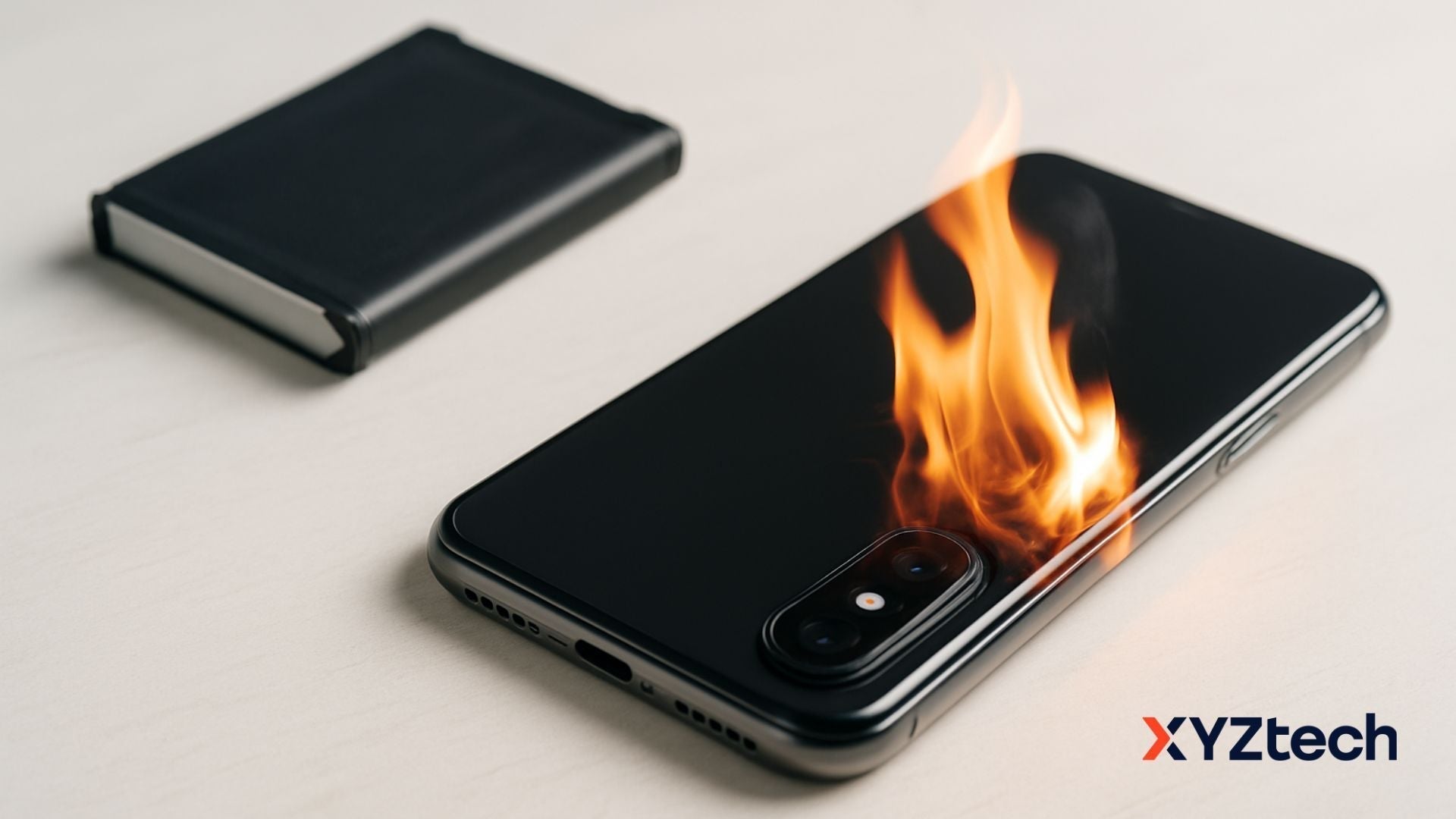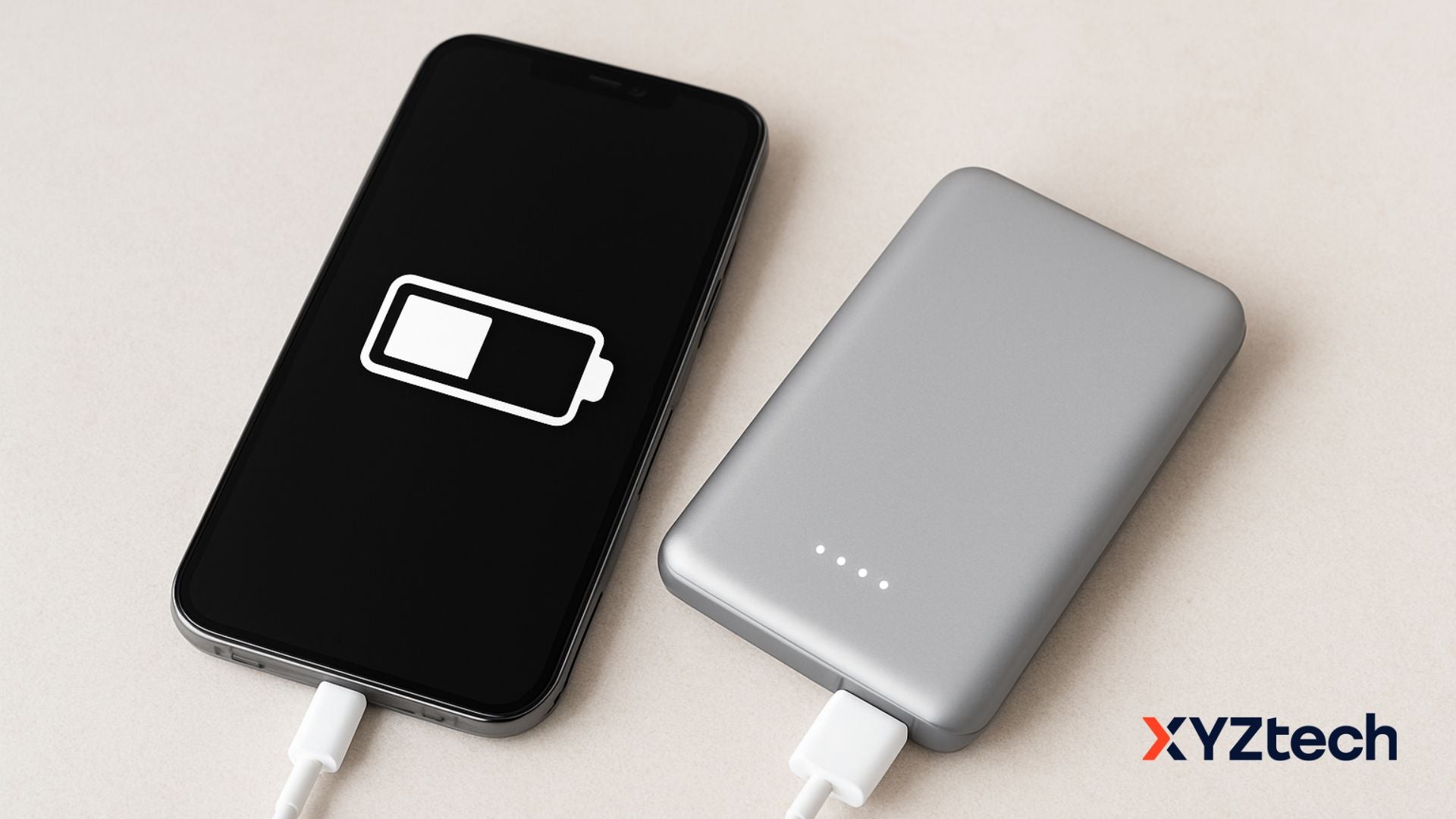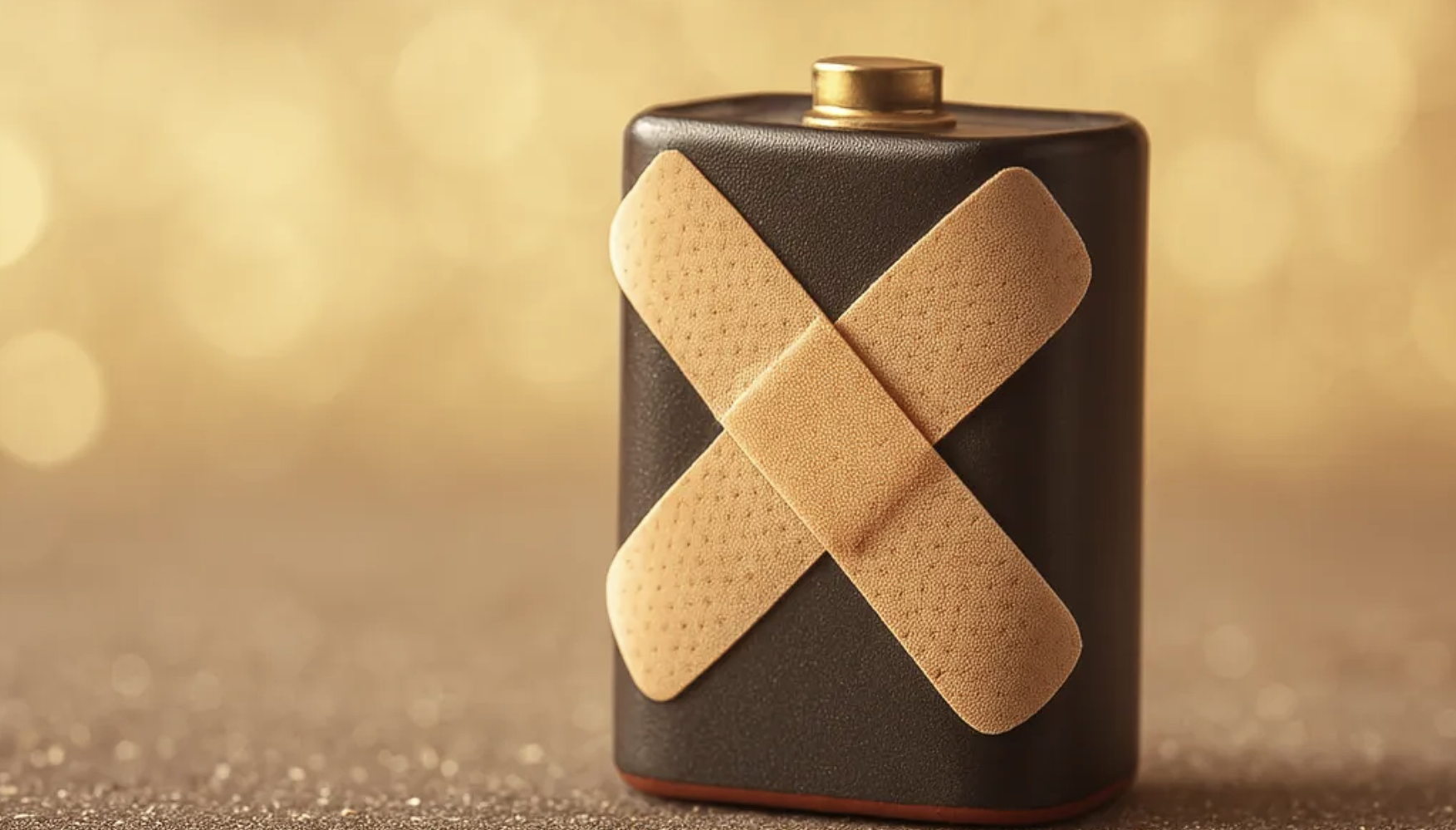Lithium Battery Fires: Stop Explosions Before They Start

Lithium battery fires are an increasing concern for anyone using smartphones, power banks, or rechargeable gadgets. While these batteries are generally safe, when things go wrong, the results can be dangerous. In this guide, we’ll explore the causes of lithium battery fires, which can lead to explosions, and most importantly, how you can protect your devices from these risks.
In this blog:
- What Causes Lithium Batteries to Explode?
- Warning Signs Before Lithium Battery Fires Happen
- How to Prevent Lithium Battery Fires
- What To Do If Lithium Battery Fires or Explosions Occur
- Debunking Common Lithium Battery Safety Myths
- Frequently Asked Questions
Let’s get started!
What Causes Lithium Batteries to Explode?
Understanding what causes lithium batteries to explode or catch fire is the first step toward prevention. Several common factors can trigger lithium battery fires in devices like phones and portable chargers:
Overcharging: A Key Cause of Lithium Battery Fires
When a battery is overcharged, it goes beyond its safe operating limits. Heat builds up, breaking down the liquid electrolyte and releasing flammable gases. If these gases ignite, lithium battery fires, or in severe cases, lithium battery explosions, can occur.
Quick Tip: Stick to the charger that came with your phone or power bank, or choose a certified replacement designed specifically for your device.
High Heat and Lithium Battery Explosions
Leaving your phone or power bank inside a hot car or exposed to direct sunlight? That’s a common way to trigger thermal runaway, a chain reaction that can result in lithium battery fires or lithium battery explosions.
Practical Advice: Keep devices away from excessive heat to stay safe.
Physical Damage Can Lead to Lithium Battery Fires
Accidental drops, crushing, or puncturing can damage the battery’s internal layers. If the thin separator between battery components breaks, it could cause a short circuit, and eventually, lithium battery fires.
Charging Mistakes and Lithium Battery Explosions
Using a damaged or incorrect charger can cause charging errors. Mismatched voltage or excessive current may lead to lithium plating inside the battery, eventually causing internal short circuits that result in lithium battery explosions.
Warning Signs Before Lithium Battery Fires Happen
Recognizing a problem early can prevent bigger issues. Watch for these signs that your phone or power bank might be in trouble:
- Swollen or bulging battery
- Strong chemical smells
- Hissing or popping noises
- Excessive heat during use or charging
- Leaking fluids
If you notice any of these symptoms, stop using the device and dispose of the battery at a certified recycling center.
How to Prevent Lithium Battery Fires
A few simple habits can go a long way in keeping your phone or power bank safe from overheating, swelling, or worse. Here’s what you can do to stop lithium battery fires before they even start.
Use Proper Chargers
Cheap or counterfeit chargers often deliver inconsistent power. Always use the manufacturer’s charger to reduce the chance of lithium battery fires and lithium battery explosions.
Avoid Overcharging
Unplug devices when fully charged. Modern electronics have safety circuits, but constantly leaving them plugged in overnight can still stress the battery over time.
Keep Devices Cool
Don’t charge your phone or power bank on beds, couches, or other soft surfaces where heat can build up. Use a hard, flat surface for better ventilation.
Handle Devices Carefully
Physical impacts can damage the battery’s protective layers. Treat your phone and power bank gently to reduce the risk of lithium battery fires.
Inspect Batteries Regularly
Take a quick look at your devices once a month. Look for swelling, cracks, or leaks. If something looks off, replace the battery.
Safe Long-Term Storage
When storing phones or power banks long-term, keep them charged to about 40-50% and store them in a cool, dry spot. This reduces the risk of swelling and deep discharge damage.
Dispose of Batteries Properly
Never throw lithium batteries in the trash. Fires have started in garbage trucks and waste facilities because of improperly discarded batteries. Take used batteries to a certified recycling center or hazardous waste facility.
Storage Safety Tip: Store used or spare batteries in a cool, dry location, away from direct sunlight or heat sources. Avoid keeping them in cars, sheds, or near heaters where temperatures can get dangerously high.
What To Do If Lithium Battery Fires or Explosions Occur
Even with all the right precautions, accidents can still happen. If your device starts to smoke, swell, or catch fire, leading to a lithium battery explosion, knowing how to respond can protect you and those around you. Here's what to do if a lithium battery fire or explosion occurs:
Small Devices Like Phones or Power Banks
- If it’s charging, unplug it only if it’s safe to do so.
- Move the device outside and away from flammable materials.
- If you can, submerge a small device in water to cool it down and reduce further risk.
- If the fire spreads or cannot be controlled, evacuate and call emergency services.
Health Safety During Lithium Battery Fires
Lithium battery fires release harmful gases. If you accidentally inhale smoke, move to fresh air immediately. Seek medical help if breathing issues, coughing, or eye irritation persist.
Debunking Common Lithium Battery Safety Myths
Not everything you hear about lithium batteries is true. Some common myths can actually lead to unsafe habits or unnecessary fear. Let’s set the record straight and clear up the confusion with facts that matter for everyday users.
Myth: All lithium batteries are dangerous.
Reality: Quality batteries, when properly used and stored, are safe. Most risks come from mishandling, using poor-quality batteries, or improper charging habits.
Myth: You shouldn’t use water on battery fires.
Reality: For small gadgets like phones or power banks, using water can help cool the fire and stop it from spreading if done safely.
Myth: Unplugging stops thermal runaway.
Reality: Unfortunately, once thermal runaway starts, unplugging won’t stop the chain reaction. Early detection and prevention are key to safety.
Frequently Asked Questions
Is it common for lithium batteries to catch fire?
Lithium batteries are designed to be safe when used correctly, but they can still catch fire if they’re defective, physically damaged, or improperly handled. While battery fires are rare compared to how often these batteries are used, overheating, electrical faults, or impact damage can trigger a fire or explosion.
What puts out lithium battery fires?
If a lithium battery catches fire, it’s best to use a Class D fire extinguisher such as dry powder, graphite, or copper-based agents. For smaller fires, a CO₂, ABC dry chemical, or foam extinguisher can also help stop the flames and cool the area.
What is the biggest cause of lithium-ion batteries exploding?
The most common cause of battery explosions is thermal runaway, where excessive heat builds up inside the battery. This often happens from overcharging, overheating, or internal damage, causing the battery’s chemical reactions to spiral out of control and potentially lead to fire or explosion.
Final Thoughts: Stay Powered, Stay Safe
At the end of the day, lithium batteries are part of what keeps our favorite gadgets running smoothly, whether it’s your phone, your trusty power bank, or your wireless earbuds. The good news? Most of the risks, like lithium battery fires that lead to explosions, are preventable with just a little awareness and care.
- Use the right chargers.
- Keep your devices cool.
- Pay attention to warning signs.
- And when in doubt, replace a damaged battery before it becomes a hazard.
Technology should make your life easier, not give you safety worries. By understanding how lithium battery explosions happen and how to avoid them, you’re taking a smart step toward protecting your devices, your home, and your peace of mind.
Got a story or tip about keeping your gadgets safe? Drop it in the comments below or share it with us, your experience might help someone else stay safe, too.
Stay safe and powered up out there!
Related Articles
Swollen Power Bank: Causes, Risks, and Safe Disposal Tips
How to Dispose of Power Bank: Avoid This Common Mistake!
Recycling Power Banks: Where and How To Properly Retire Them




